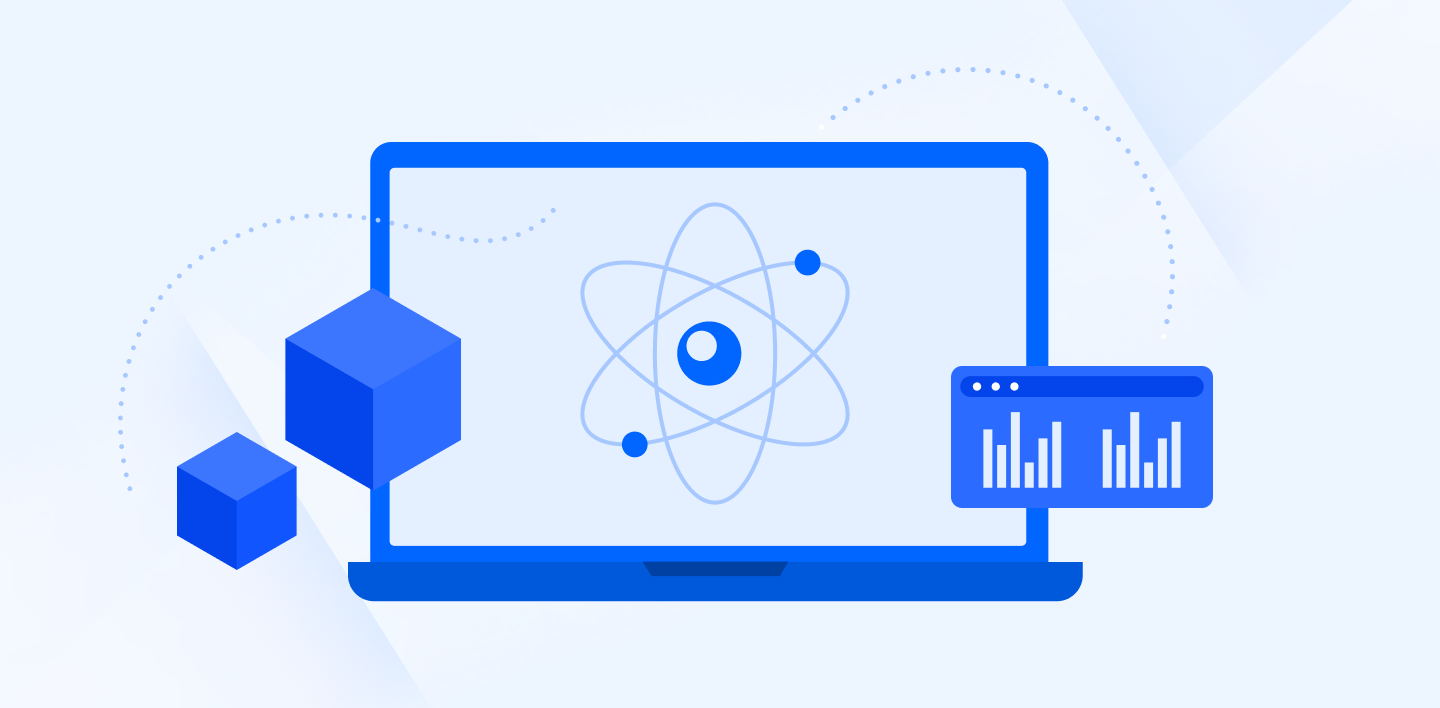Quantum Computing: A Revolutionary Leap in Technology and Privacy

Quantum computing might sound alien and strange - but it’s a revolutionary new technology. It’s a novel way to calculate using the principles of fundamental physics and to find solutions to very complicated problems very quickly.
We have come a long way since the abacus; now, almost all of our complex calculations are done with digital computers. Looking to the future, quantum computers are ready to take us to another dimension of computing. We are currently looking at a new approach to computing that is exciting and offers new possibilities.
By using the principles of quantum physics, this new approach will be able to solve very complicated statistical quandaries that older computers struggle with.
Quantum computing is one of the biggest tech trends to keep an eye on. This particular area of quantum technology is looking to become profitable for various sectors in the coming years.
How Does Quantum Computing Work?
While existing digital computing consists of bits (units of information that store either a zero or a one), quantum computing relies on quantum bits - or qubits: these store zeros and ones.
Quantum bits can represent any combination of both zero and one simultaneously, which is how it accomplishes complex tasks so efficiently.
Compared with existing, conventional computers, quantum computers have a larger working space, meaning they can explore a huge number of paths at the same time. This makes them a lot faster than the computers that we know. They can solve problems that our more classical computers would have needed thousands of years to solve in a few minutes.
While the computers we are familiar with work with a limited set of inputs and algorithms to churn out answers, quantum computers are different. When data is input into qubits, the qubits interact with other qubits. This allows several calculations to run simultaneously. Quantum computers also give us various possible answers instead of just one.
If you want answers to basic questions where there can only be one answer, classical computers are more valuable. But suppose you want solutions to complex problems. In that case, quantum computers can take on a massive burden of the work and deliver a narrow set of answers much quicker than their traditional counterparts.
But how does any of this impact our work, our society, and our lives? Let’s see!
8 Areas of Life Where Quantum Computing Can Benefit Us
Let’s look at some places that quantum computing can make a significant impact across various industries:
Healthcare
With such an increase in computing speed, we are likely to see enhanced medical diagnosis, meaning the security of medical data can help people quickly and more efficiently. Improved analysis of existing illnesses such as cancer.
Quantum computing can benefit medical research and help develop new medicines to treat previously incurable or life-threatening diseases faster. Medical technology and data will help drug research and development become less dependent on trial and error, allowing for innovative drugs to reach the public quicker.
Climate change
The ability to predict the changes in our climate will become much easier and more reliable and allow countries prone to natural disasters, such as earthquakes, to prepare and evacuate the area if necessary.
Quantum technologies can also help reduce the impact of carbon emissions by designing and maintaining advanced networks of power grids and renewable energy sources.
Artificial intelligence
Quantum computer-powered algorithms will become more complex and adaptable as they process data faster. The result will be more powerful and agile AI technology.
For example, AI can be used in machine learning to analyze vast amounts of information, process it, and use it in real-life situations. One area where this is currently being developed is language learning, where new students can practice real conversations with an AI model.
Transportation
With quantum computing, travel via air, sea, and road will become simplified as traffic becomes optimized, with smarter movements worldwide with fewer carbon emissions and faster arrival times. Carpooling, for example, would become much more straightforward to organize, leading to lower costs for everyone and the planet.
Big data
Both the value and quantity of information that computers can extract from data will increase. This will significantly benefit those sectors and technologies that rely on data flow and analysis while improving the advantages of hybrid cloud and other technologies.
Logistics
By optimizing all of the steps involved in logistics, quantum computing will make everything more efficient. This includes manufacturing, production, and even delivery processes.
Only things that we need will be produced. This leads to much less environmental waste and added savings for the company. Businesses can also simplify the manufacturing process to cut emissions and optimize the process of delivering goods by leveraging advanced freight management system solutions.
Automotive
The automotive industry could benefit from quantum computing. Whether it's for the product design phase, supply chain management, production process, or mobility and traffic management, QC can help.
Quantum computing could be used to find the most ergonomic designs to increase driver safety and comfort. It could also decrease manufacturing costs by optimizing complex processes such as welding and painting.
Finance
In the often obscure world of economics, quantum computing can play a crucial role in portfolio and finance risk management by using enhanced modeling systems to help with a myriad of tasks.
For example, anything from personal loan assessments to avoiding economic crises worldwide can be made easier or more predictable with quantum computing, as many economists struggle to predict the future of world markets. Still, computers may be able to do it better.

What Impact Will Quantum Computing Have on Security and Privacy?
Quantum computing carries the potential to reinvent and improve the cryptography and security landscape. We already have quantum cryptography with Internxt Drive which protects your cloud storage against the future threats of quantum computing.
This task puts a massive burden on our existing computers, but one that quantum computing can carry out easily, resulting in quantum cryptography methods to ensure highly secure communication channels for years to come.
An increasingly complex security landscape is to be expected, with cyberattacks and hacks becoming more sophisticated by the day with the evolution of artificial intelligence. Quantum computing is a necessary aid for any company and government department moving forward in this scenario.
There are several legal considerations we need to take into account with quantum computing, such as the following.
Competition law
Since any company with access to a quantum computing system will have a huge commercial advantage over companies that don’t, this raises questions about the ethics of free and fair competition. This increases the risk of creating monopolies, which can control the market to an undesirable extent (e.g., forcing down wages for producers while inflating prices for consumers).
The reliance on quantum computing systems could also create a new dependency on a field we are still very much getting to grips with.
Cybersecurity
As previously touched upon in this article, quantum computing will have both advantages and disadvantages for the importance of cybersecurity. While we may see an increase in cyber threats, there will also be a development of our current security standards to counter these threats. Whole new systems of security will likely arise as well.
Quantum computers could be exploited by criminals to carry out advanced attacks on devices in ways we never thought possible or planned for. On the other hand, they could also be a great aid in detecting and preventing such threats in the first place.
The main question for us, however, is will our existing legal instruments and other preventative measures be adequate enough going forward? And will they be able to adapt in light of these developments?

Data protection
Quantum computing is likely to allow for more sophisticated and greater quantities of data processing. This then throws up questions surrounding data protection and privacy.
While quantum computing is projected to be able to meet data privacy requirements, and even revolutionize how we protect data, it is still an area that will require intense study.
Many of the existing laws or measures we go through to mitigate the risks of data loss may prove insufficient, unsuitable, or even a thing of the past. Core values, such as minimal use of data, transparency surrounding data use, and fairness, will likely go through a difficult test.
Contract law
This new technological realm will likely affect existing contractual dynamics.
Regarding contract laws, quantum computers are still in the early stages of this specialist area. Negotiating a fair contract will take some skill and some form of trial and error. We still don’t know what malfunctions could arise. IT experts will probably need to be consulted during contract drafting and contracts revisited over and over again.
There will also need to be an analysis of regulatory requirements, especially for public institutions and organizations. These require full transparency, as do non-profit organizations and private companies.
Patent laws
Finally (for this article, not for the huge subject that is quantum computing), patent applications are already on the rise concerning quantum computing, and they’re likely to keep going up.
With advancements in technology such as quantum computing, it’s reasonable to expect some legal disputes to arise concerning patent claims, ownership of quantum technology, and unauthorized uses.
Another area worthy of attention is software licensing, which will likely involve thorough and painstakingly created contracts.
How Can Companies Prepare for This Change in the Future?
With quantum computing being such a novel development, there is a pretty big talent gap in businesses needing experts with knowledge of quantum computing. So here’s how you can try to acquire the quantum talent you need and stand out from the competition to your potential employees:
Offer relevant training for workers
Even people who won’t interact much with this technology will still need to know the basics of cybersecurity. Ensuring a decent level of technological literacy for everybody will help workflow productivity and avoid any hiccups. Everyone will need to understand the fundamentals of quantum.
Whether you’re the CEO, an accountant, the marketing team, the salespeople, or have to work with call center technology, this knowledge will be useful as we all begin to adopt more advanced computing technology into our work and personal lives.
Define the skills you need early and clearly
It might be tempting to jump in blind and try to hire quantum tech experts willy-nilly. A better approach would be to think about what exactly you want your data scientists to do.
You should identify the areas where you can apply quantum computing effectively to gain the most out of this technology. Your team and new employees can then have a focus and be able to work together coherently moving forward.
Ensure there is diversity in your team
Like it or not, we live in a very biased society. This is why it is so important to involve a diverse range of perspectives when developing quantum computing.
We don’t yet know the effects that biases could have on this technology. However, it’s not ridiculous to assume there would be some effect, so we should mitigate that while we’re ahead.
Track down some analytics translators
Analytic translators are very helpful in aiding company and department heads in identifying and prioritizing challenges for quantum computing to address.
Translators, particularly those with backgrounds in application, engineering, and science backgrounds are essential assets for helping organizations. They can aid in helping stakeholders what the new opportunities are in upcoming businesses, and methods to mitigate potential risks without barriers to communication.

Quantum Computing: Future and Potential Challenges
Quantum computing is a fascinating technological development, but it will pose both huge opportunities and possible issues regarding privacy that we must be aware of if we are to adopt this technology in the future.
However, there is still a shortage of experts in the field. This is something that we will have to address, ensuring that a diverse range of people are involved in its development.

